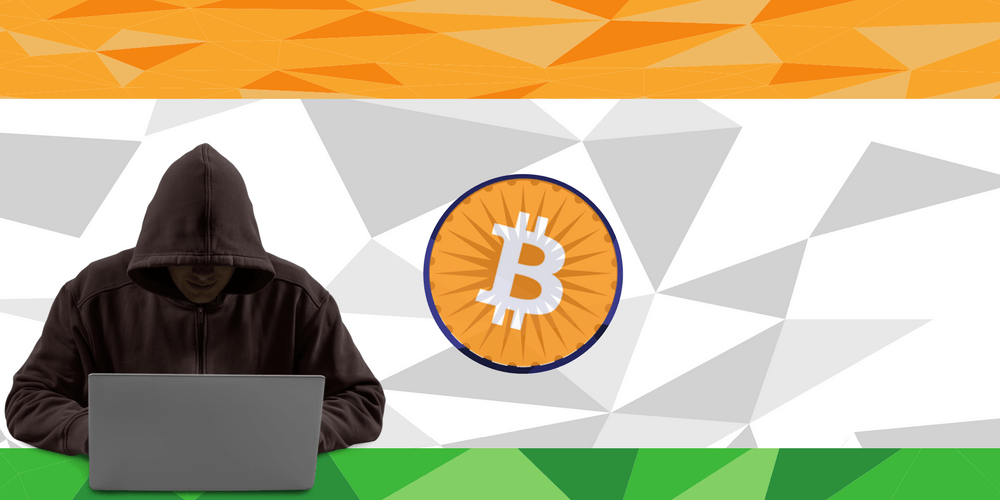
As Indian authorities consider a framework for digital currency regulations, the nation is witnessing a rise in the number of cyberattacks with extortionists demanding ransoms in bitcoin.
In May, world organisations were targeted by a cyberattack known as WannaCry where hackers were demanding ransom payments in bitcoin. Of those companies faced with the virus were several Indian companies. Yet, unlike many organisations who were paying the ransom Indian firms were choosing not to. In their eyes to do so would only bring further trouble.
The following month, India’s largest container port, the Jawaharlal Nehru Port Trust (JNPT) – along with oil companies, multinational organisations and banks in Russia, Europe, America and Asia – was subjected to a cyberattack that crippled systems. The virus, known as NotPetya, encrypted hard drives, overwriting files with the hackers demanding ransom in bitcoin. According to the government’s Computer Emergency Response Team (CERT-In), 34 Indian companies were affected by the cyberattacks in May and June.
In light of the cyberattacks, India’s finance minister, Arun Jaitley, called a meeting to examine the risks associated with the digital currency. At the time, no decision was taken, but the role of cryptocurrencies remains an ongoing debate for the government. Consequently, in March, the Finance Ministry set up an interdisciplinary committee designed to look into digital currencies after they had become ‘a cause of concern.’ A report was expected to be submitted by the committee at the end of July on its findings with measures as to how to deal with them.
In August, it was reported that the panel had submitted its report to Jaitley; however, a government official privy to the committee’s development said that digital currencies are ‘unlikely to be declared illegal in India.’ Yet, under which regulatory body they will fall remains unclear.
At the time, the government official said:
“Discussions till now suggest that bitcoin will most likely fall under the ambit of the RBI [Reserve Bank of India]. But some are of the opinion that bitcoin is a security rather than a currency and should be regulated by SEBI [Securities and Exchanges Board of India].”
Unlike Japan, which officially deemed bitcoin as a currency in April, India doesn’t appear to be as keen to follow suit. As such, establishing rules around it may take some time, according to the official.
Yet, the fact remains that in 2016 ransom demands in cryptocurrency surged by 300 percent in India compared to the previous year. With bitcoin recently scaling over $4,000, its rising value will continue to make it a favourite among criminals targeting Indian systems. Additionally, the first six months of 2017 have already seen over 27,000 cases of cybercrime in India reported to CERT-In. With 50,000 reported in 2016 it’s likely that the country will cross this number by December. From cyberattacks, phishing scams, viruses and denial-of-service attacks, India is continually working at boosting its infrastructure as more Indians go online.
However, this doesn’t appear to be impacting bitcoin’s use among India’s people. So much so, that at the beginning of August, Jaitley admitted that there had been ‘notable growth’ in the bitcoin market in India in recent years. This has, no doubt, been fuelled by the country’s demonetization in November, which saw the removal of 86 percent of the nation’s currency overnight.
Not only that, but Aswath Damodaran, a professor of finance at New York University, known as the ‘dean of valuation,’ said that digital currencies were replacing gold among the younger generation in India.
He said that all currency is based on trust and that:
“Cryptocurrencies have taken the role of gold at least for younger investors because they don’t trust paper currencies.”
As such, India expects to see a rise in cashless transactions. In Jaitley’s February budget speech, he set the nation a target of 2,500 crore digital transactions (25 billion) for 2017-18. This is up from four billion in 2015-16.
Yet, while countries such as Russia, the U.S. and Japan have classified digital currencies as either payment methods or property, India is still sitting on the fence. But, with a rising threat in ransomware and a demand for ransoms in bitcoin, India needs to firmly establish where the currency sits to give greater protection to its people.

